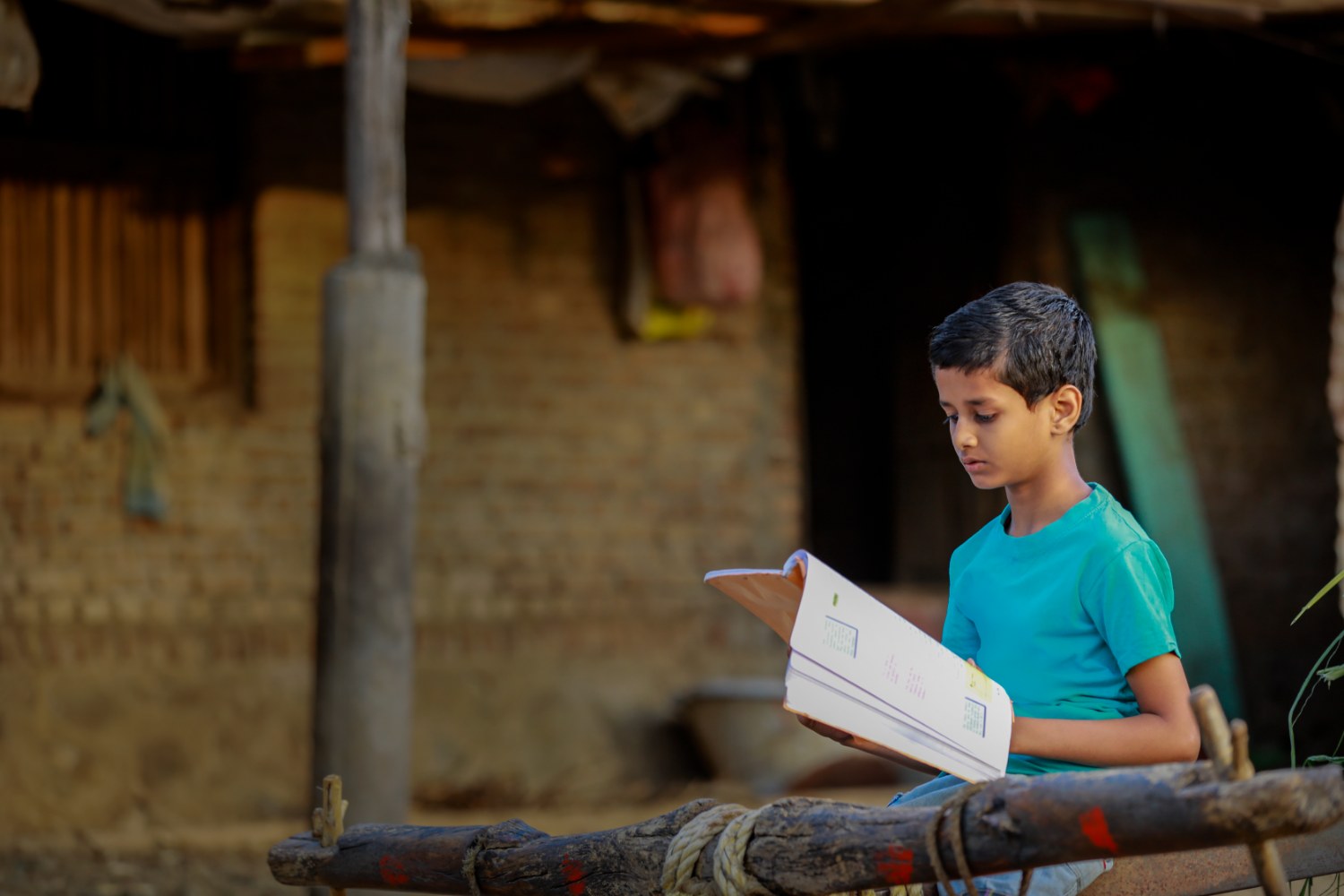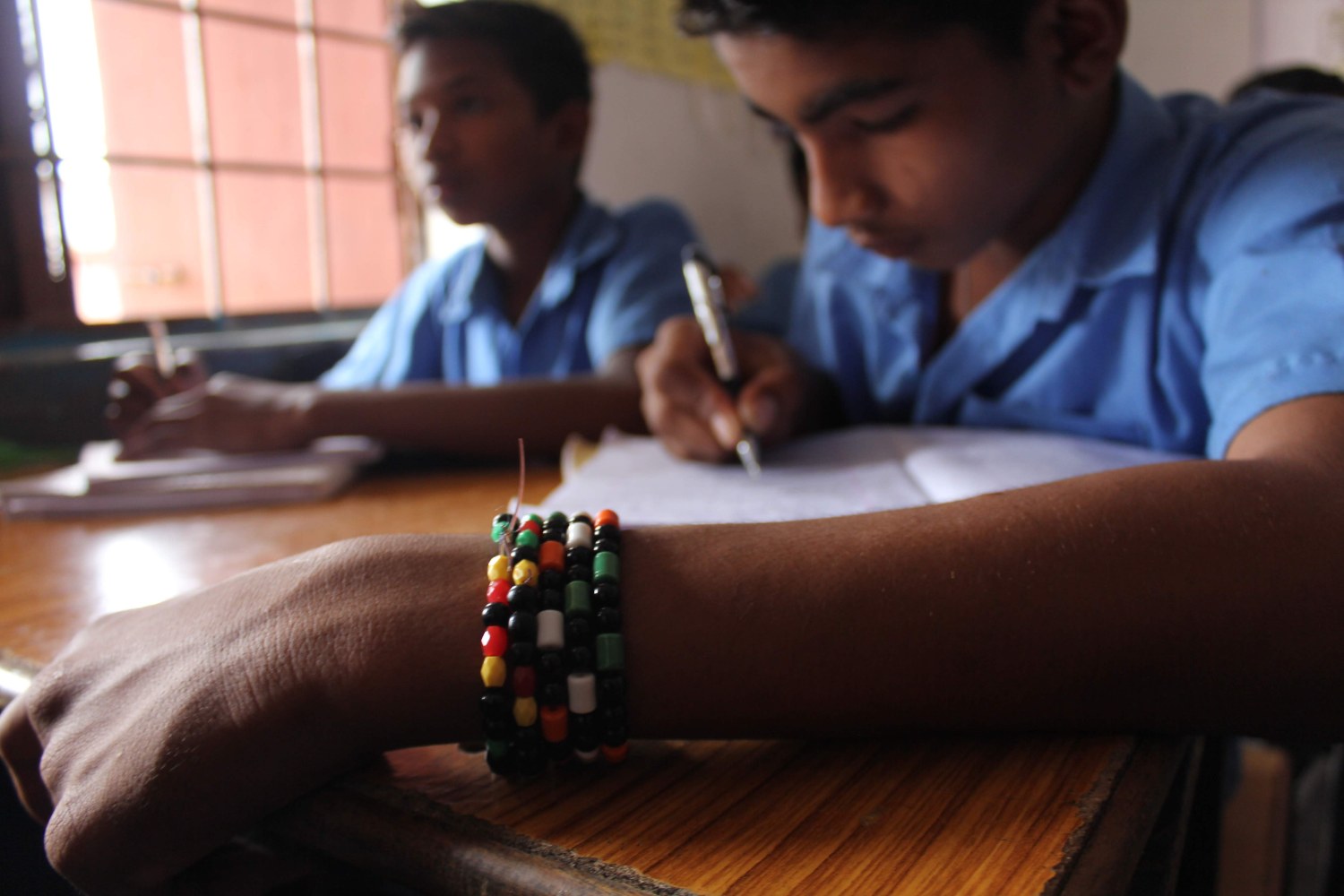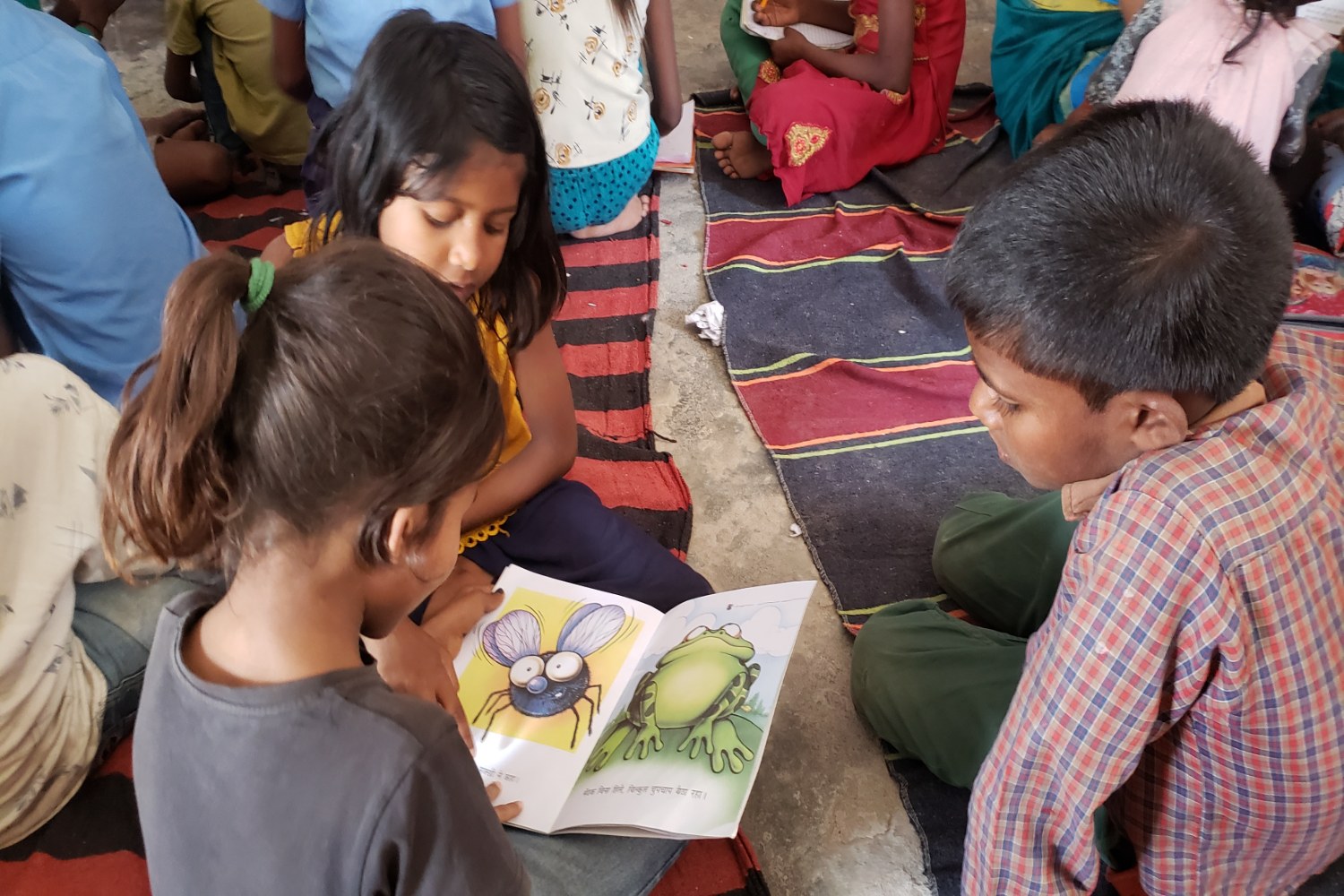Early Childhood Education in the Context of NEP – Learnings from Sangareddy
In ‘Early Childhood Education in the Context of NEP,’ M Sreenivasa Rao discusses the process through which we can effectively build a rich learning ecosystem for young children in governmental schools and Anganwadis by building the capacity of teachers and formulating effective curricula.

NEP 2020 is a clear and strong endorsement of the public education system. It envisions high-quality, equitable and universal education—in and through the public education system. This is as applicable to higher education as to school education (age 3-22 years roughly). Public-spirited, not-for-profit, private institutions will certainly have a role in the Indian education system. However, the state must provide high-quality education. All efforts are expected to be aligned with this goal.
New NEP 2020 aspires to universal provisioning of quality early childhood development; care and education must be achieved not longer than by 2030. This would be taken up in a phased manner. The major responsibility of delivering quality ECE is envisaged through institutions such as schools and Anganwadis, which would have the mandate to take care of the overall care, learning, development and well-being of the child. These institutions will also provide similar support to families for children younger than three years of age—within their homes.
NEP 2020 says that the “highest priority of the education system will be to achieve universal foundational literacy and numeracy in primary school by 2025.” Therefore, classrooms will need to be strengthened with required resources, print-rich environments, child-friendly workbooks, storybooks, etc. Relevant teacher resource material/ handbooks etc. will have to be made available as well.
The overall aim of ECCE will be to attain optimum outcomes in the domains of physical and motor development, cognitive development, socio-emotional and ethical development, cultural/artistic development, development of communication, and early language, literacy and numeracy development. Hence, “ECCE ideally consists of flexible, multifaceted, multilevel, playbased, activity-based, and inquiry-based education”.
Our work in Telangana (in Sangareddy district) focuses on transforming anganwadis into vibrant learning centers for the holistic development of 3- 6-years-old children. Teacher capacity development is at the heart of a quality early childhood program and early learning opportunities available to children. Our experience suggests that such a holistic ‘in-service capacity development model’ can effectively develop teachers’ competence to ensure quality early childhood education programs for children.
While keeping the Anganwadi teachers at the center, our efforts span across all levels of ICDS functionaries. Our emphasis is on supporting the implementation of quality ECE programs within the ICDS structure with its existing resources. We do this for all Anganwadi teachers in the district through a multi-pronged model. This has evolved over the years based on our experiences on the ground.
We engage teachers through multiple platforms such as project meetings, sector meetings, melas, seminars, specific workshops and onsite support at Anganwadi centers. An experiential approach provides opportunities for hands-on experiences to teachers through activities that they can do with children for enabling the latter’s development. Peer sharing and learning are facilitated on these platforms. Developmentally appropriate curriculum and teaching practices followed by teachers are the key elements that foster optimal development in children.
With this understanding, and using field experiences gained over the years, we have a clear understanding of factors that affect the quality of ECE programs. We have developed ‘teaching practices’ that a teacher can understand well and can perform on an everyday basis in the Anganwadis. These practices are developmentally appropriate, can be practiced by most teachers, and foster significant development in children. These cover the following areas: classroom environment; safe and secure environment; children’s hygiene; developmentally appropriate opportunities for children; assessment of the development; and relationships and partnerships with parents and functionaries.
The effect on the ground shows that we are on the right track. A significant focus of our capacity development work with Anganwadi teachers is now centered around the key teaching practices to have more effect on the ground.
Importance of the Curriculum
A key aspect to achieving the goal of effective ECCE is a curriculum that suits the children’s socio-cultural context, surrounding nature, classroom environment, and teachers who can transform children’s development. NCFECCE 2014, and NCERT’s Pre-school Guidelines 2019 and curricular resources suggest a thematic approach for preprimary education. This is an integrated and developmentally age-appropriate approach. Some of the state WCDs took support from the Education Department (SCERT), individual experts of ECE and NGOs who are working in the field of ECE to finalize the curriculum.
However, many states are still following discrete activities with limited time. The state should work with the Department of Education along with other experts and NGOs to have a good preprimary curriculum as suggested by NEP 2020. A few states like MP and Chhattisgarh have initiated collaborative, context-sensitive, curriculum development processes in alignment with NEP guidelines. These states have also developed thematic handbooks for Anganwadi teachers and other curricular resources. These efforts will enable the state governments to achieve FLN goals, if consistent mentoring, monitoring and training support is provided to the teachers as well.
Curriculum development has a broad scope because it is not confined only to the school, the learner and teachers. It is also inherently enabling for the human resource development of society in general. In today’s knowledge economy, the curriculum for young children has a vital role in preparing them for the future and improving the economy of a country. It can also provide answers and solutions to the world’s pressing conditions and problems related to the environment such as climate change and sustainable development, and political and socioeconomic issues such as poverty.
Indian society is highly diversified in nature. Therefore, pre-primary curriculum must inevitably consider diversified cultural needs as an aspiration rather than a reality. We need to aspire for ‘education for diversified cultures’ rather than for ‘diversified education.’ To address the needs of a population with diversified socio-cultural contexts and needs, we need to respond to prevalent systemic and school-based issues while developing curricula.
In the current scenario, there is a great need for collaboration and synergy between MHRD and MWCD. The biggest challenge is true collaboration between the Education and Women and Child Welfare departments in working together to prepare a good curriculum for children and teachers. This would require a strong commitment to attain consensus by both the departments.
Our learnings and experiences of working with Anganwadi teachers in a few states are as follows. The state is required to support in preparing curricula and handbooks for teachers. Teachers can implement curricular activities effectively with children’s meaningful engagement. Teachers would require handholding to implement the curriculum in an effective manner. The curriculum has to have flexibility to add local materials, stories, songs, and activities including nature walks as a pedagogical tool, etc. There is a lack of sufficient materials to transact the curriculum. Funds need to be made available to make it possible for Anganwadis to make the learning aids locally.
Systemic Issues and Challenges
Language and script: The curriculum is failing to address the linguistic needs of children coming from different language backgrounds. The curriculum is not able to address this diversity and the teachers are not prepared or trained to address this.
Lack of curricular resources and infrastructure: Addressing the diversified needs of the children, the curriculum should be complemented with adequate resources of teaching and learning materials.
Quality of teaching-learning processes: The effectiveness of the curriculum is relatively dependent on the quality of the teachers who are directly responsible for the curriculum’s effective implementation. Anganwadi teachers are overburdened with work other than the services of Anganwadis.
Socio-economic diversities: Socioeconomic diversity is one of the major concerns in addressing the different linguistic, social, regional and local education needs of communities.
Context of Anganwadi Teachers and Roles and Responsibilities
Anganwadi teachers are crucial to implementing a quality ECE program, as envisaged in NEP 2020. There are around 1.4 million ‘Anganwadi teachers’ currently working under WCD. The Anganwadi teacher is a community-based frontline honorary worker/teacher selected by the district level committee for implementing the Integrated Child Development Services (ICDS) scheme. The Anganwadi Center (AWC) is the basic unit of childcare and service delivery at the village level, and the Anganwadi teacher is the only service provider assisted by a helper.
Early childhood education is one of the six services provided in Anganwadis, for which the Anganwadi teacher needs to spend most of her time in a day. The other services mainly cover health, nutrition and community education.
Given the emphasis on health and nutrition issues and their criticality in children’s well-being and growth, the ICDS scheme prioritizes health and nutrition activities, resulting in monitoring efforts also stressing these. As a result, the AWT can provide less time and attention to ECE activities.
In the context of the ICDS program, there is a thirty-day job course training for newly selected AWTs, where around four days are spent on ECE. During the in-service period, a seven-day refresher training is offered to share their experiences and update their knowledge in the areas of nutrition, health care, and Early Childhood Education. Here too, the overall time spent on ECE is insufficient. Hence, Anganwadi teachers are either unprepared or inadequately prepared as ECE teachers.
It is evident that, due to the absence of well-planned, quality capacity-building programs and supportive onsite mentoring, Anganwadi teachers are not able to develop the necessary content and pedagogic knowledge, perspectives on ECE, and vision for holistic child development.
Their understanding of the purpose of ECE is limited to scribbling, identifying and reciting alphabets, reciting some songs and rhymes, repeating the same stories without conceptual understanding, and emphasizing developmental needs.
Hence, NEP 2020 suggests preparing an initial cadre of high-quality ECCE teachers in Anganwadis. The current Anganwadi workers/ teachers will be trained through a systematic effort by the curricular/pedagogical framework developed by NCERT. Anganwadi workers/teachers with qualifications of 10+2 and above will be trained through a six-month long certificate program in ECCE. Those with lesser educational qualifications would be trained through a one-year diploma program covering early literacy, numeracy and other relevant aspects of ECCE.
Pieces of training at scale conventionally have many challenges in terms of identifying needs, delivery mechanisms, consistency in delivering content, time and schedule, and evaluation of the training program. When it comes to cross-functional departments that are managed by different leaderships, there may be more challenges than in-house or within departmental programs.
Challenges of Large-Scale Training Programs Rollout
- Very structural and rigid process in decision making
- Leadership-centric style instead of a common approach
- Prioritizing the goals simply and planning to achieve them
- A systematic needs assessment and timely evaluation to address the challenges and required changes Building a strong cadre to address the teachers’ capacity building needs regularly
- Mechanism to address the professional needs of various groups who are in the system
- Lack of effective mentoring and monitoring mechanisms
- Insufficient resources including the budget for teachers’ professional capacity building regularly and consistently
- New methods of professional development of teachers and other functionaries
In Conclusion
NEP 2020 has a few salient features to strengthen the foundational years of development. It looks at ECE as an upward extension to primary education rather than downwards. Its approaches toward learning outcomes are articulated very precisely. The new curricular framework of early childhood education would help teachers to engage children effectively. There is a requirement for support from civil society organizations, experts, etc. to contribute and build the capacity of ECE teachers to achieve the goals of NEP 2020.




No approved comments yet. Be the first to comment!